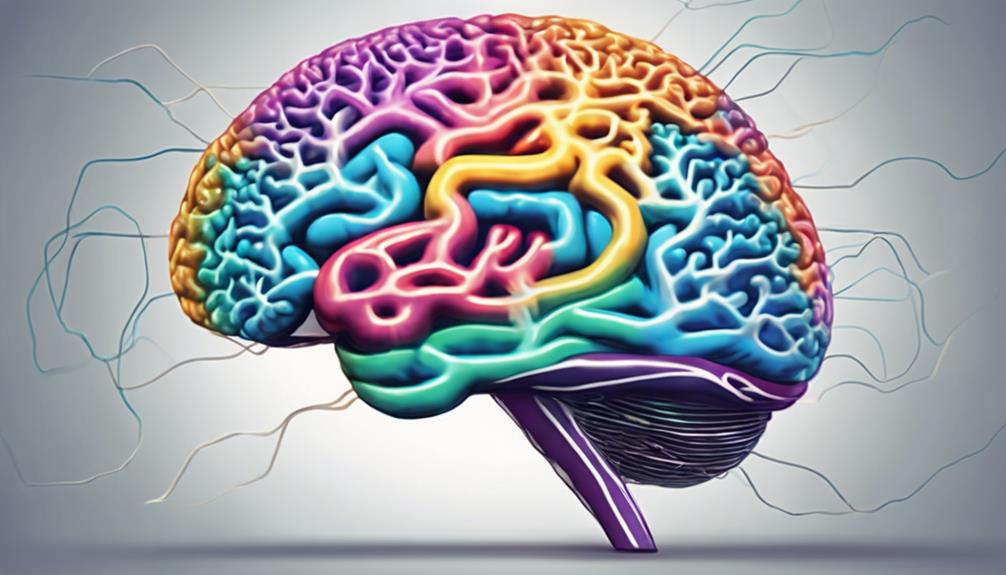Clinical hypnosis harnesses the mind-body connection to optimize pain relief by modulating pain perception. Techniques induce relaxation, develop coping strategies, and reframe negative thoughts for healing. Integration in patient care enhances treatment outcomes and engagement, complementing traditional medical interventions. Evidence supports hypnosis for effective pain management, reducing intensity and increasing tolerance. Implementation in clinical practice requires structured, evidence-based approaches tailored to individual needs. The science-backed benefits of hypnosis in addressing pain and mental health make it a valuable tool for optimizing patient well-being. Further exploration of hypnosis techniques can provide deeper insights into pain relief methods.
The Science Behind Clinical Hypnosis

The understanding of the neurobiological mechanisms underlying clinical hypnosis is essential for comprehending its efficacy in therapeutic settings. Neurological processes play a crucial role in how individuals respond to hypnosis.
Research suggests that during hypnosis, there are changes in brain activity, particularly in regions associated with attention, control, and perception. These changes can modulate sensory perception and alter cognitive responses, leading to the therapeutic benefits observed in clinical hypnosis.
Cognitive responses, such as focused attention, increased suggestibility, and alterations in perception, are key components of the hypnotic experience. Through hypnosis, individuals can achieve a state of heightened focus and concentration, allowing them to explore and address subconscious thoughts and emotions.
This heightened suggestibility can facilitate changes in behavior, beliefs, and perceptions, ultimately contributing to therapeutic outcomes.
Hypnosis Techniques for Pain Relief
Clinical hypnosis techniques for pain relief have shown promising results in various studies and therapeutic settings. Pain management is a critical aspect of healthcare, and the mind-body connection plays a significant role in how individuals perceive and experience pain.
Through hypnosis, individuals can tap into their subconscious minds to alter their perception of pain, ultimately reducing its intensity and improving overall well-being.
One of the key hypnosis techniques for pain relief involves inducing a deep state of relaxation through guided imagery and suggestion. By relaxing the body and mind, individuals can effectively manage pain symptoms and enhance their quality of life.
Additionally, hypnosis can help individuals develop coping strategies, improve their resilience, and increase their pain tolerance.
The mind-body connection in pain management is essential, as psychological factors such as stress, anxiety, and depression can exacerbate pain symptoms. Through hypnosis techniques, individuals can learn to reframe negative thought patterns, release tension, and promote healing within the body.
Integrating Hypnosis in Patient Care

Integrating hypnosis techniques within patient care protocols demonstrates promising potential for enhancing overall treatment outcomes and patient well-being. By incorporating hypnosis into patient care, healthcare providers can leverage this therapeutic approach to foster deeper patient engagement and improve treatment effectiveness.
Patient engagement plays a crucial role in healthcare outcomes, and hypnosis offers a unique avenue to enhance this aspect of care. Hypnosis can be integrated into patient care through various methods such as guided imagery, relaxation techniques, and suggestion-based interventions. These techniques can help patients relax, manage anxiety, and alleviate pain, thereby complementing traditional medical interventions.
Moreover, the use of hypnosis in patient care aligns with a holistic approach to treatment, addressing not only physical symptoms but also psychological and emotional aspects of health.
Evidence-Based Benefits of Hypnosis
Research studies have consistently demonstrated the evidence-based benefits of hypnosis in various healthcare settings. Numerous research findings have highlighted the effectiveness of hypnosis in pain management and mental health benefits.
In the realm of pain management, hypnosis has been shown to alleviate both acute and chronic pain by modulating the perception of pain signals in the brain. Patients undergoing hypnosis often report reduced pain intensity and increased pain tolerance, showcasing the tangible impact of this technique on subjective patient experiences.
Moreover, the mental health benefits of hypnosis have been well-documented in research literature. Studies indicate that hypnosis can effectively reduce symptoms of anxiety, depression, and PTSD. By tapping into the power of the mind-body connection, hypnosis helps individuals cultivate coping strategies, enhance relaxation, and foster a sense of control over their mental well-being.
Patient experiences consistently reflect improvements in mood, stress levels, and overall quality of life following hypnosis sessions. The empirical evidence supporting the benefits of hypnosis underscores its value as a complementary therapeutic tool in healthcare settings.
Implementing Hypnosis in Clinical Practice

The integration of hypnosis into clinical practice requires a structured approach that aligns with evidence-based guidelines for optimal patient outcomes. Hypnosis effectiveness and patient acceptance are crucial factors to consider when implementing hypnosis techniques.
Healthcare professionals interested in incorporating hypnosis into their practice should undergo comprehensive hypnosis training to ensure proficiency and ethical application.
Patient acceptance of hypnosis can be influenced by factors such as communication, trust, and a clear understanding of the process. It is essential for healthcare providers to educate patients on the benefits and potential outcomes of hypnosis to enhance their willingness to engage in this therapeutic approach.
Effective implementation of hypnosis in clinical practice involves tailoring techniques to individual patient needs and preferences. Healthcare professionals should continuously assess the efficacy of hypnosis interventions and adjust them accordingly to optimize patient outcomes.
Frequently Asked Questions
Can Clinical Hypnosis Be Used for Chronic Pain Management?
Clinical hypnosis shows promise in chronic pain management by influencing pain perception and pain thresholds through addressing psychological factors. Research suggests it can be an effective complementary approach, potentially enhancing traditional pain management strategies.
How Long Does It Typically Take to See Results With Hypnosis?
The effectiveness of hypnosis in managing chronic pain varies among individuals. Typically, noticeable results in pain relief through hypnosis may be observed within a few sessions, but a more comprehensive improvement may require consistent practice over weeks to months.
Are There Any Risks or Side Effects Associated With Hypnosis?
When considering hypnosis, it's essential to address potential risks and benefits. Research suggests that when conducted by trained professionals, hypnosis is generally safe with minimal side effects. Its efficacy in pain relief is promising.
Can Hypnosis Be Effective for All Types of Pain Conditions?
Hypnosis can be effective for various pain conditions by influencing pain perception through the mind-body connection. Research suggests potential benefits in managing acute and chronic pain, but individual responses may vary, necessitating personalized approaches for optimal results.
Is Hypnosis Covered by Health Insurance for Pain Management?
Insurance coverage for hypnosis in pain management varies. Some policies include it as an alternative therapy, reflecting growing acceptance. However, limitations exist, such as specific conditions or provider qualifications. Patients should consult their insurance plans for details on coverage.
Conclusion
In conclusion, clinical hypnosis techniques offer a promising approach to optimizing pain relief in patient care. The science behind hypnosis supports its effectiveness in managing pain, and integrating these techniques into clinical practice can provide evidence-based benefits.
By implementing hypnosis in patient care, healthcare providers can offer a non-invasive and potentially powerful tool for pain management. Further research and training in hypnosis may lead to improved outcomes for patients experiencing chronic pain.


